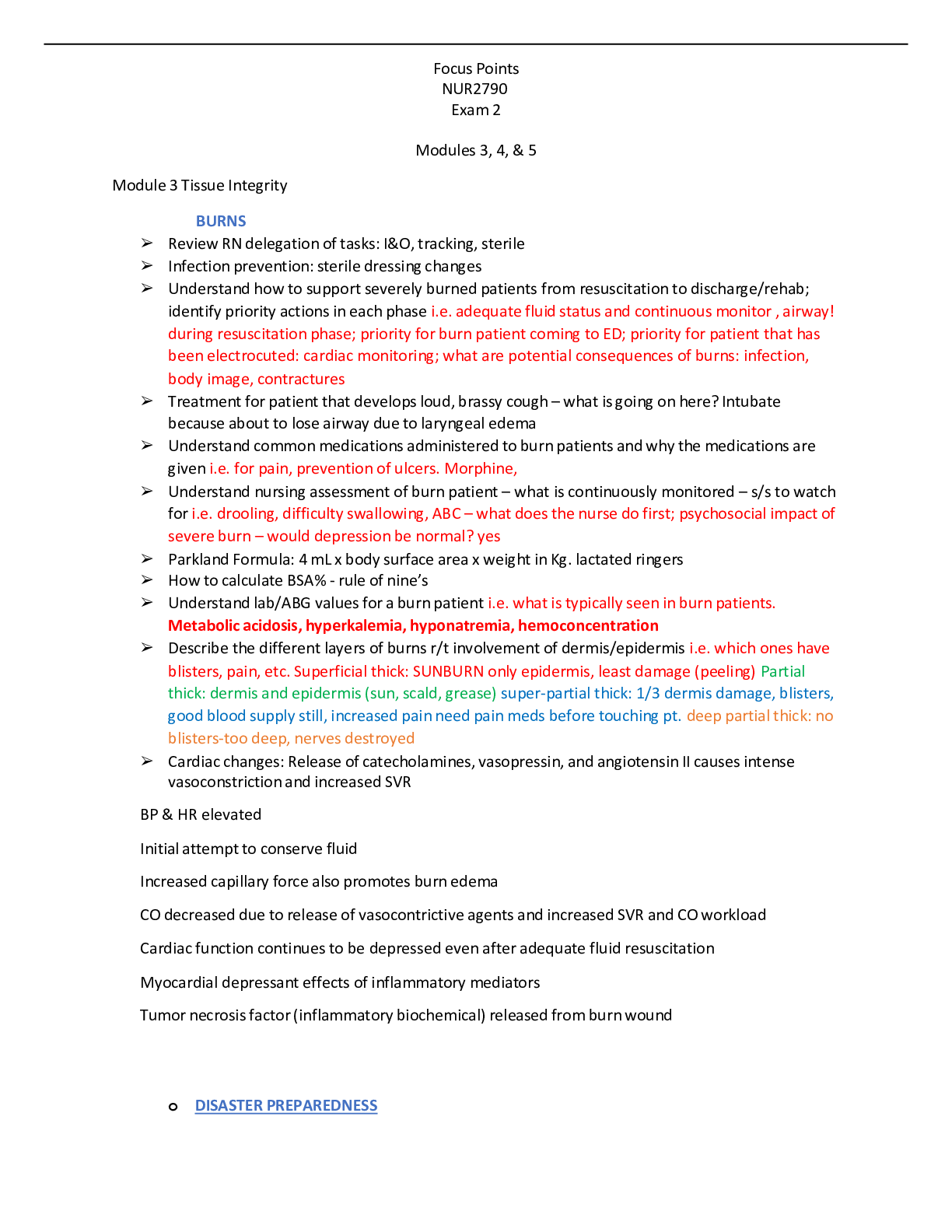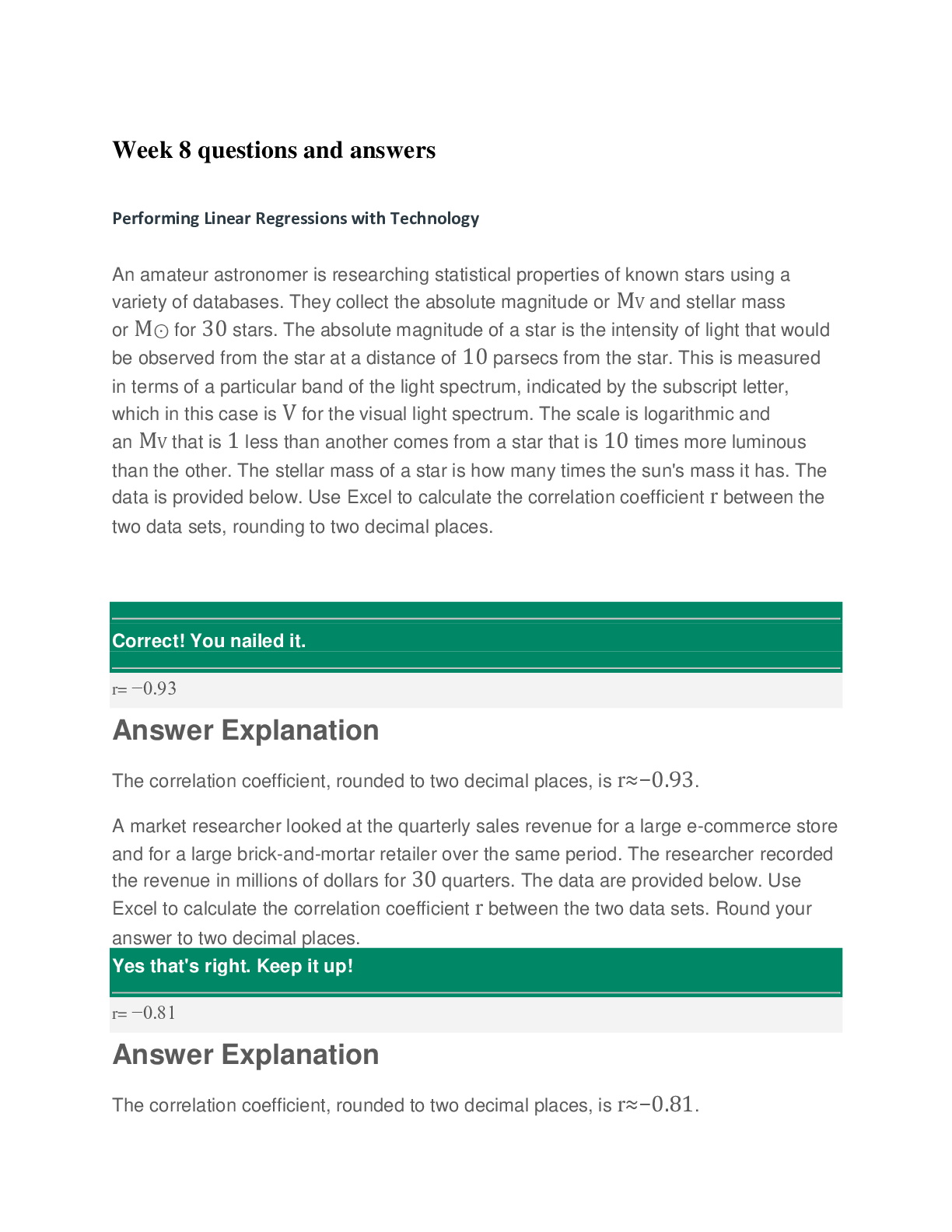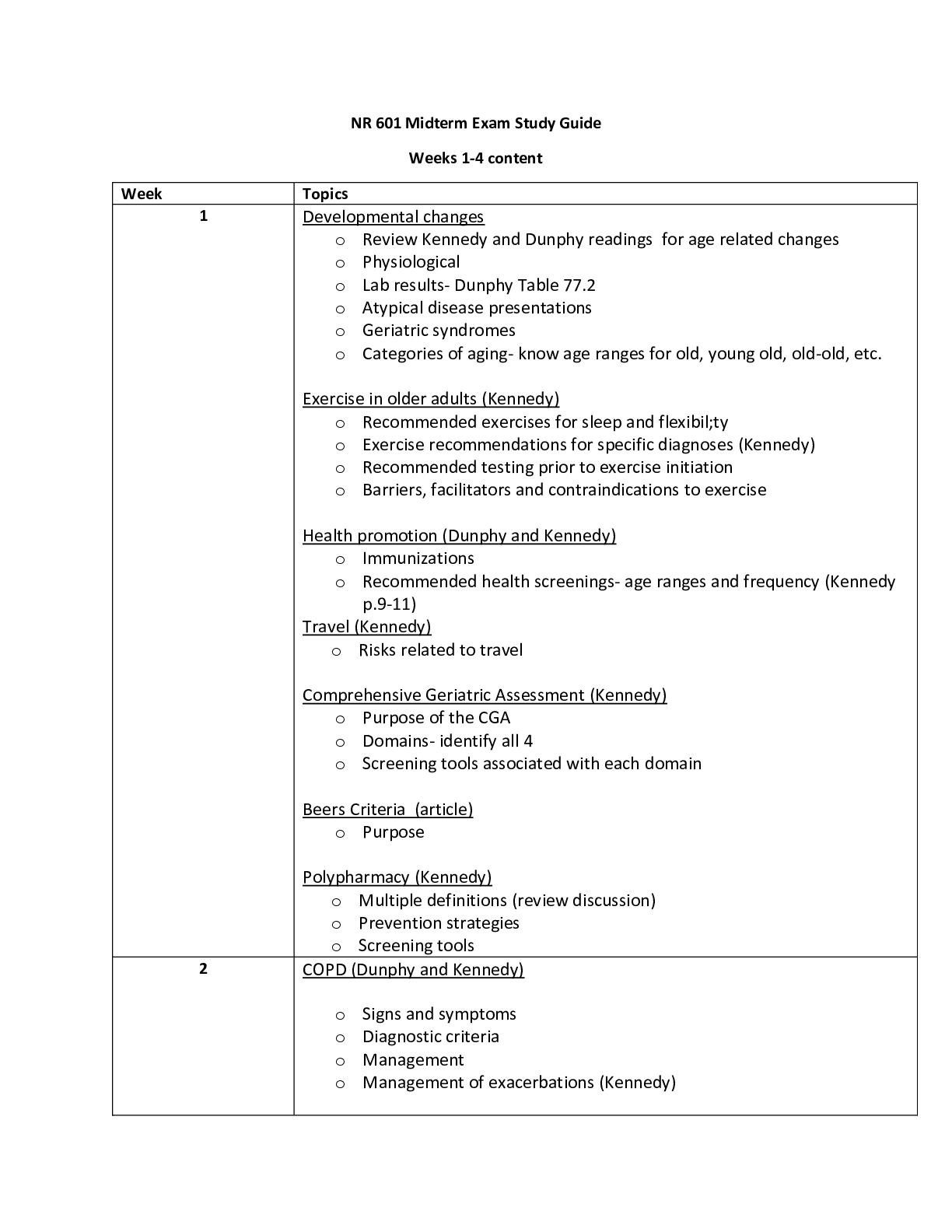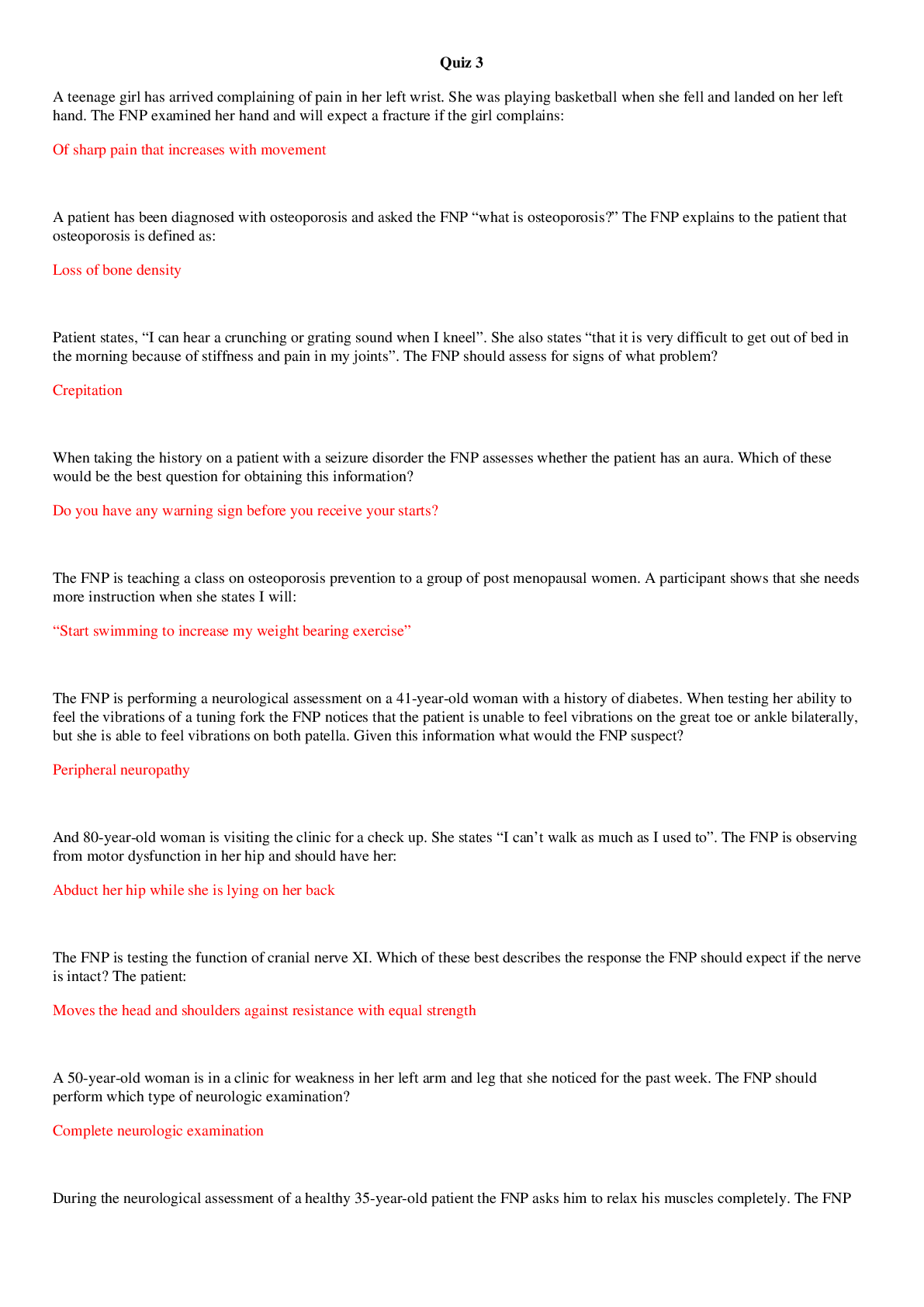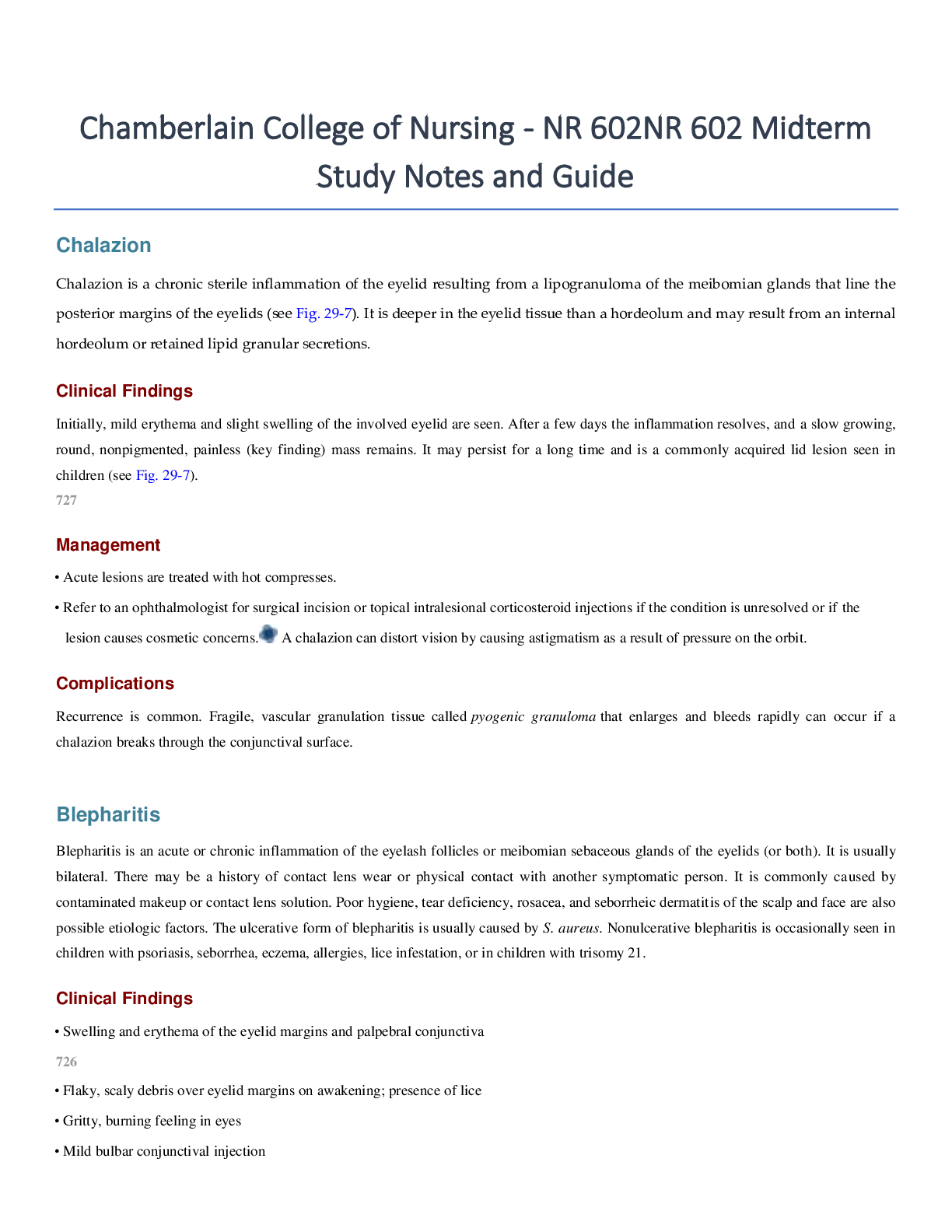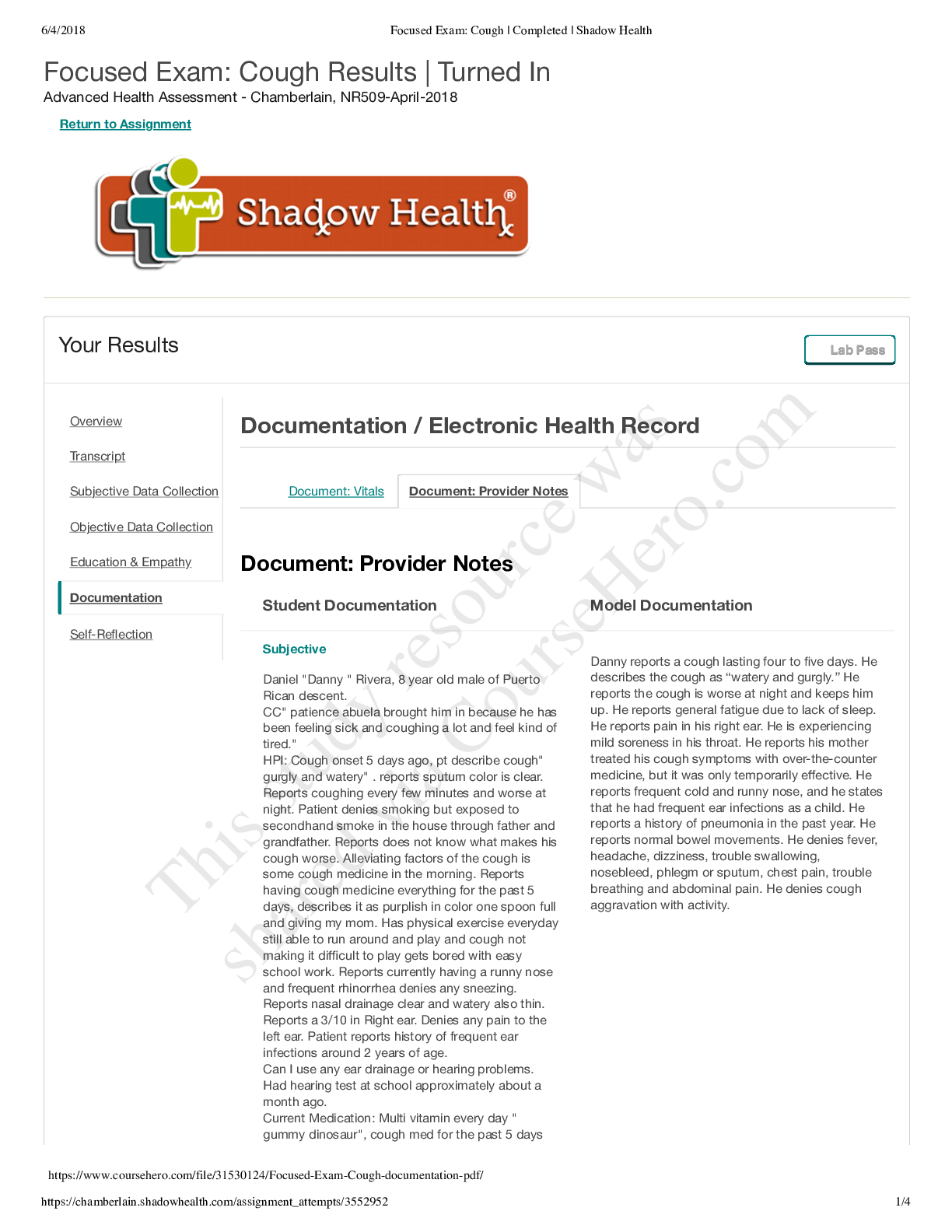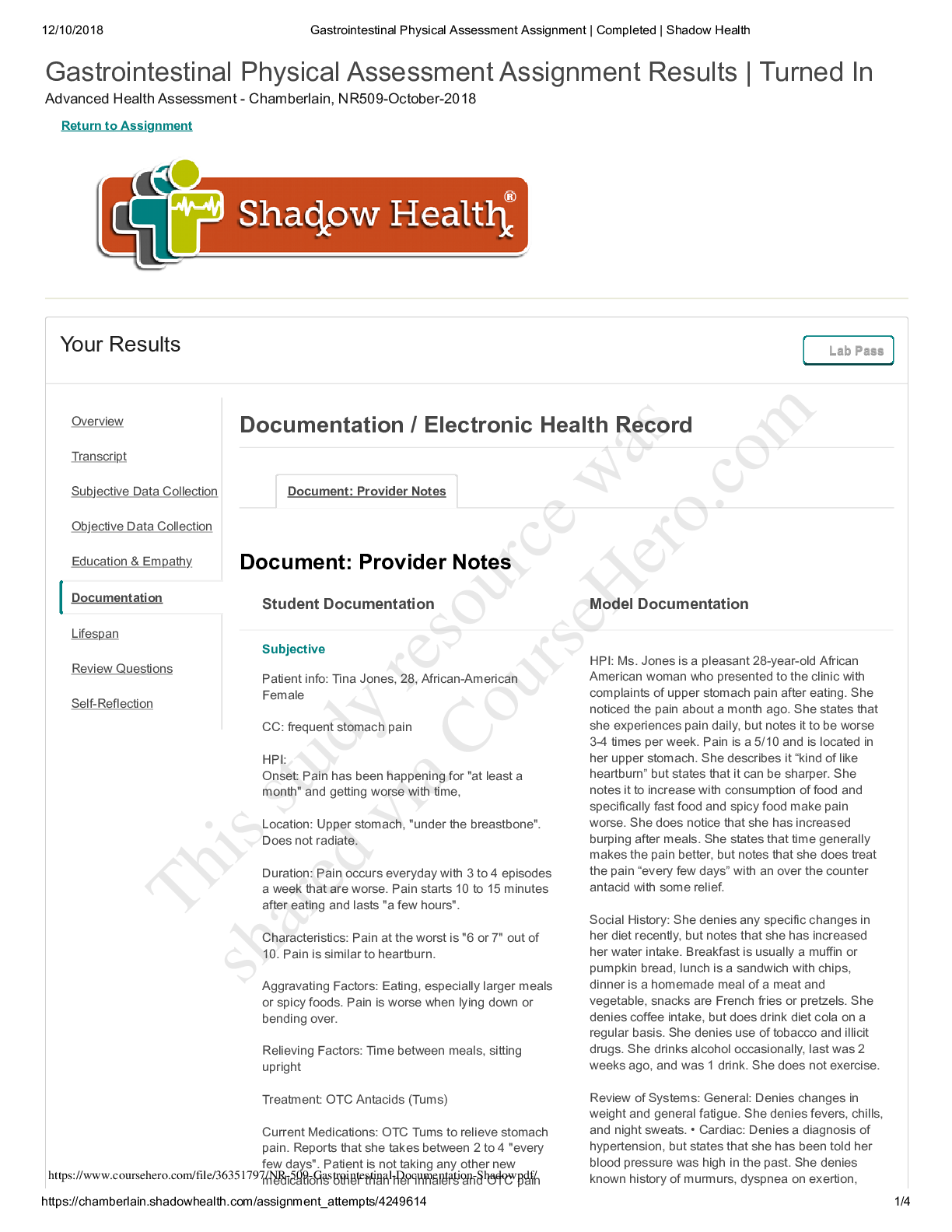*NURSING > STUDY GUIDE > Chamberlain College of Nursing - NR 511NR 511 week 2 Snapps writing assignment. (All)
Chamberlain College of Nursing - NR 511NR 511 week 2 Snapps writing assignment.
Document Content and Description Below
SNAPPS WRITTEN ASSIGNMENT TEMPLATE What is the self-directed learning issue that was identified in your oral presentation? When is watchful waiting of acute otits media without antibiotic use approp... riate? Research the self-directed learning issue and provide a summary of your findings which is fully supported by appropriate, scholarly, EBM references. Acute otitis media is a common infection in children. The infection usually arises after a viral infection such as an upper respiratory infection, or can be caused from irritants such as smoke or allergies (MacGeorge, Smith, Caldes & Hackman, 2017). Symptoms of acute otitis media can include fever, middle ear pain, hearing loss, redness, and bulging tympanic membrane (MacGeorge, et. al., 2017). The first line treatment for patients with severe symptoms is amoxicillin. Overuse of antibiotics can lead to resistance and in turn be harmful for the patient. Watchful waiting is recommended for patients who have mild ear infections. Watchful waiting can be implemented when the patient has a mild ear infection. Patients who have severe pain, fever, or under the age of 2 years old should receive antibiotics (Sun, McCarthy & Liberman, 2017). Patients who are over the age of 2 years old with mild symptoms of otitis media have been proven to resolve on their own without antibiotics (MacGeorge, et. al., 2017). When the patient is determined watchful waiting as the treatment, the parents are given an antibiotic prescription to use only if the symptoms do not improve within 48-72 hours or the symptoms worsen (MacGeorge, et. al., 2017). During this time the patient should be provided supportive care such as rest, analgesics, and fluid promotion. https://www.coursehero.com/file/58965826/NR-511-week-2-Snapps-writing-assignmentdocx/ This study resource was shared via CourseHero.com Watchful waiting can help decrease over use of antibiotics and also reduce the chance of antibiotic resistance. Antibiotics should only be prescribed in severe cases when the patient is having severe pain, fever, hearing loss, or dizziness (MacGeorge, et. al., 2017). Antibiotic resistance is a severe public health concern and steps need to be taken to combat this issue. Antibiotics should only be utilized when determined medically necessary [Show More]
Last updated: 2 years ago
Preview 1 out of 4 pages
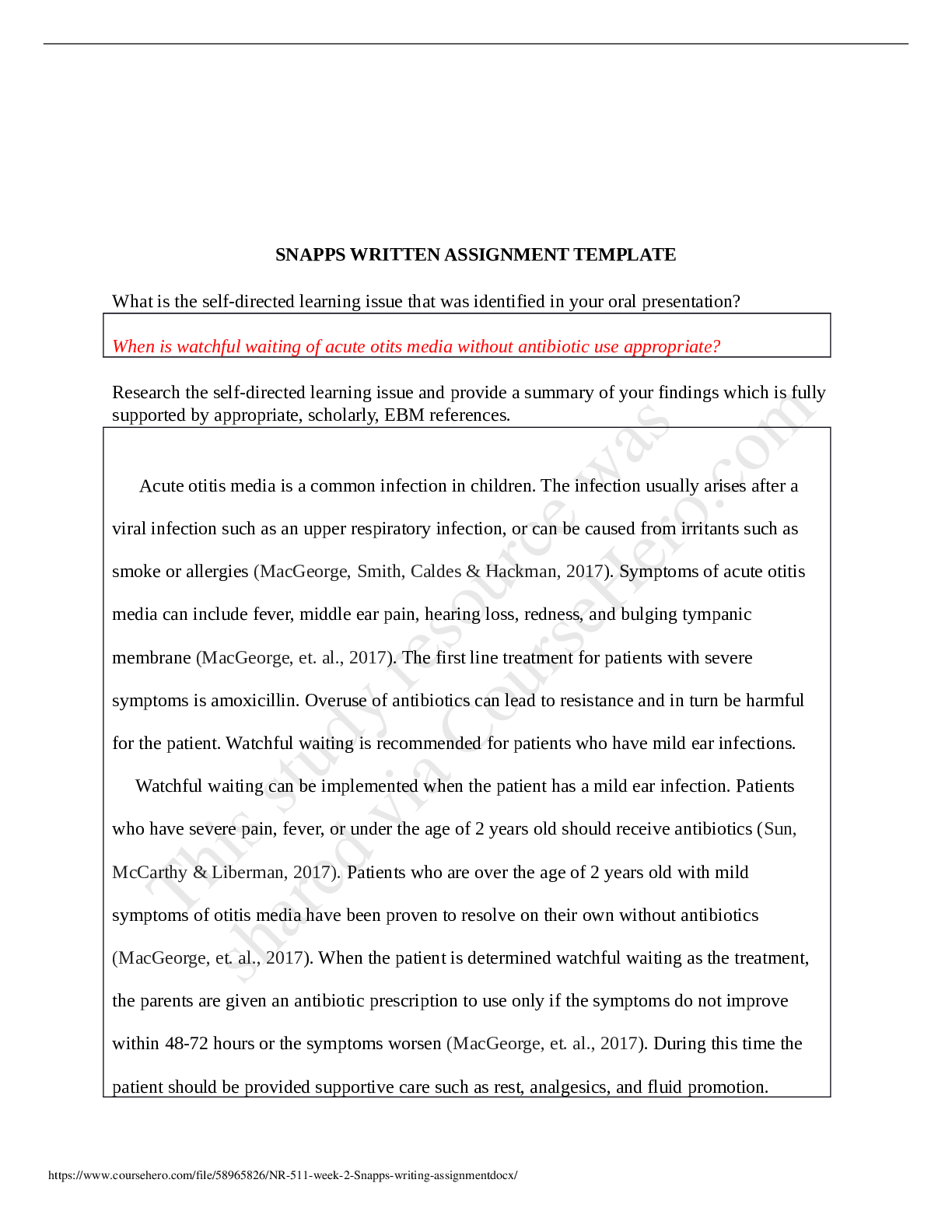
Buy this document to get the full access instantly
Instant Download Access after purchase
Buy NowInstant download
We Accept:

Reviews( 0 )
$5.00
Can't find what you want? Try our AI powered Search
Document information
Connected school, study & course
About the document
Uploaded On
Mar 12, 2021
Number of pages
4
Written in
Additional information
This document has been written for:
Uploaded
Mar 12, 2021
Downloads
0
Views
128


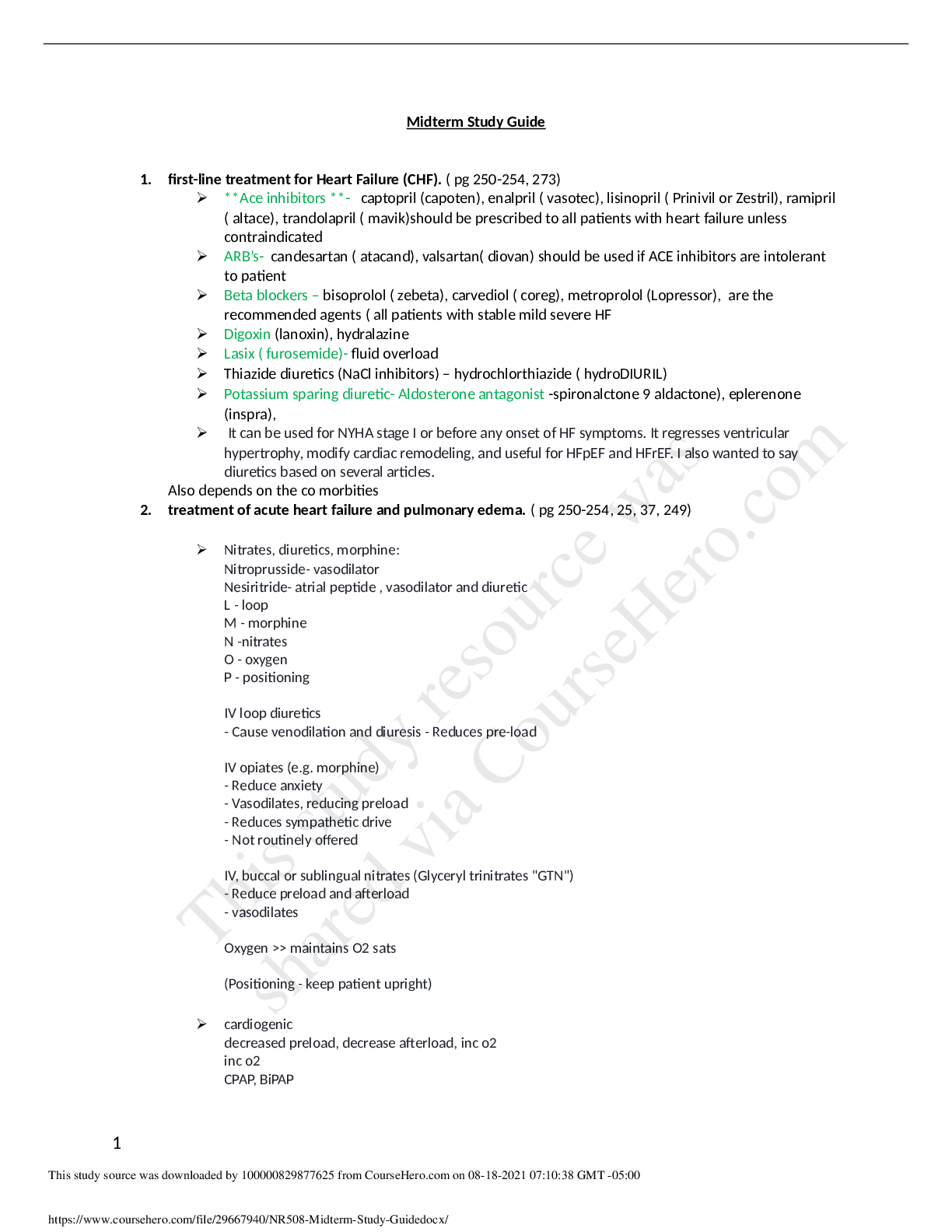
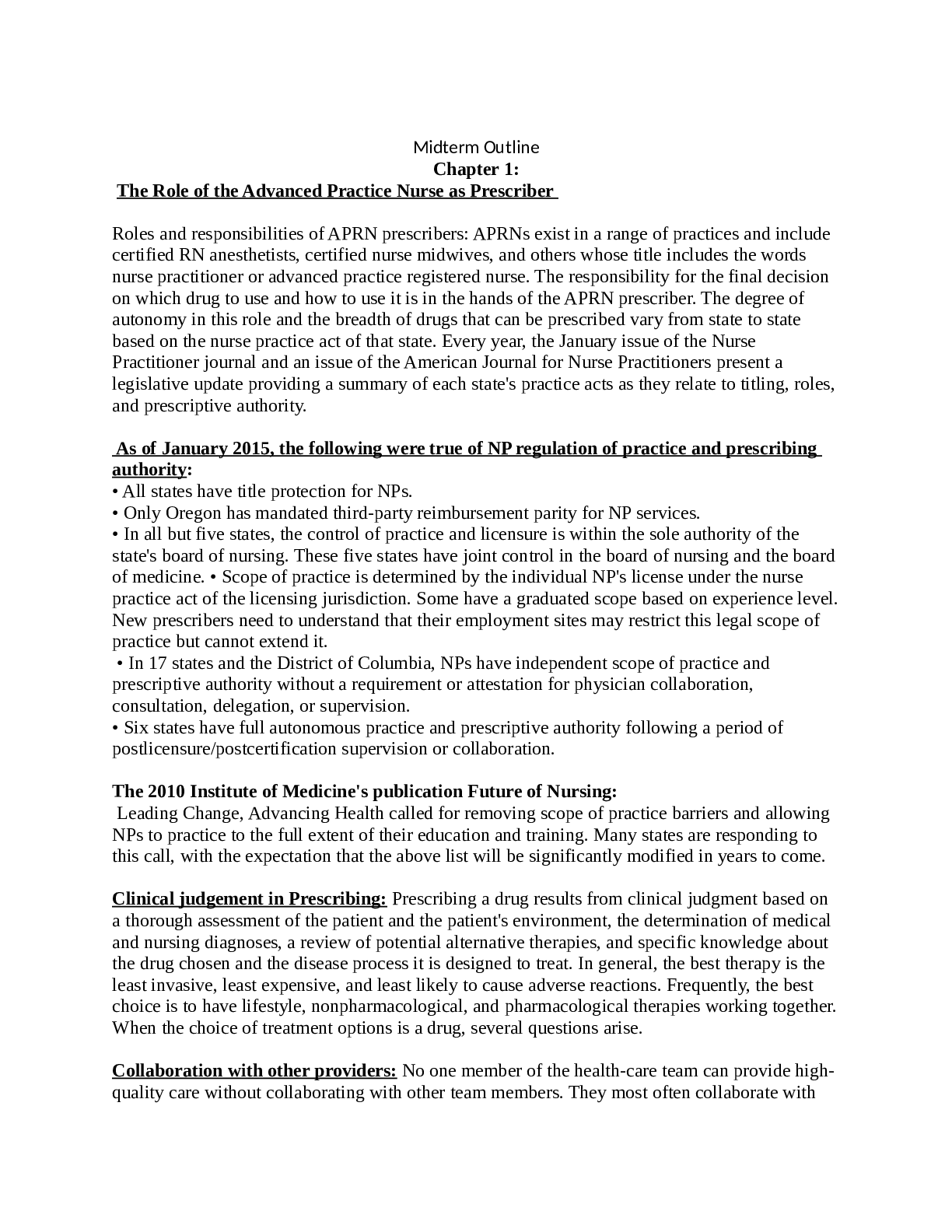

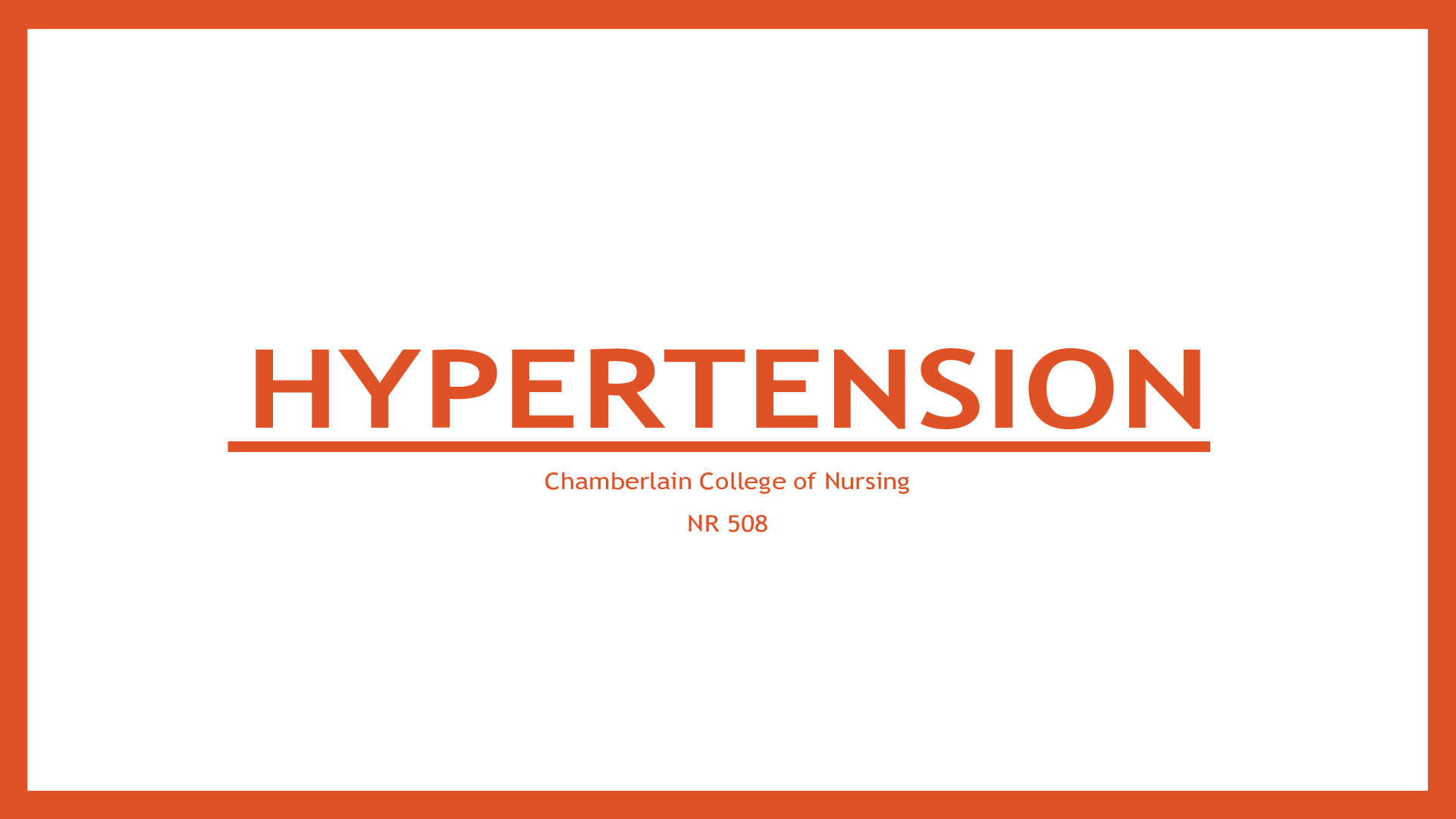
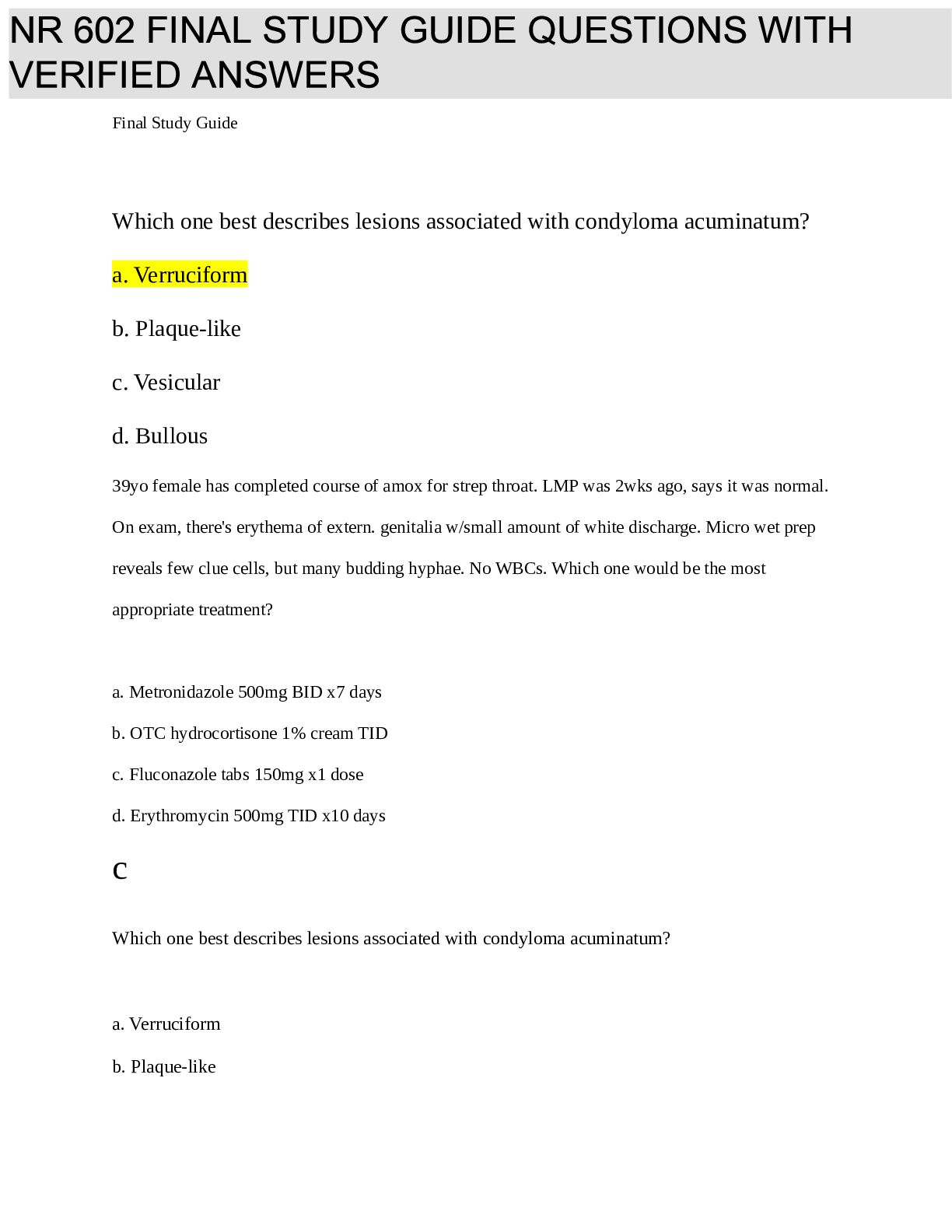
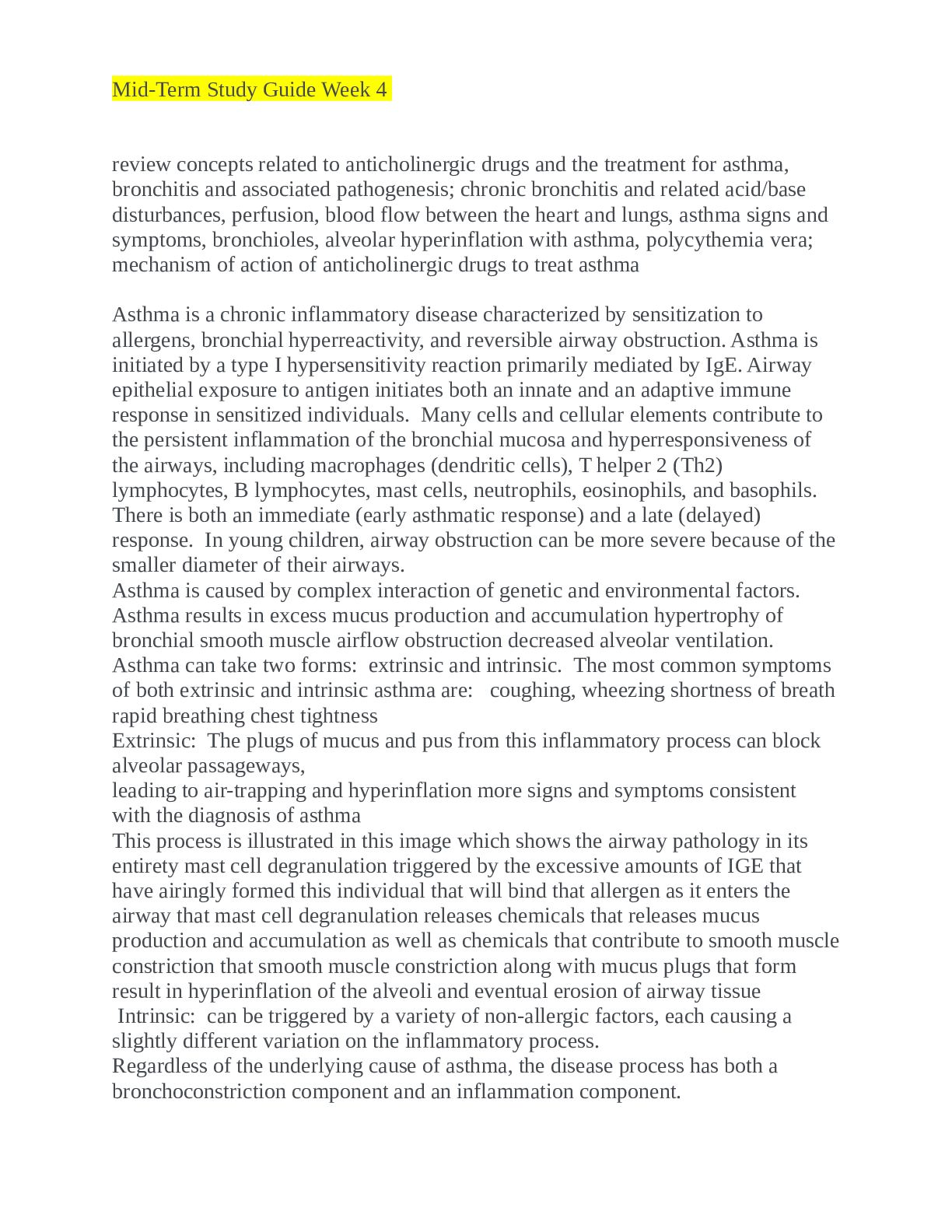
.png)
